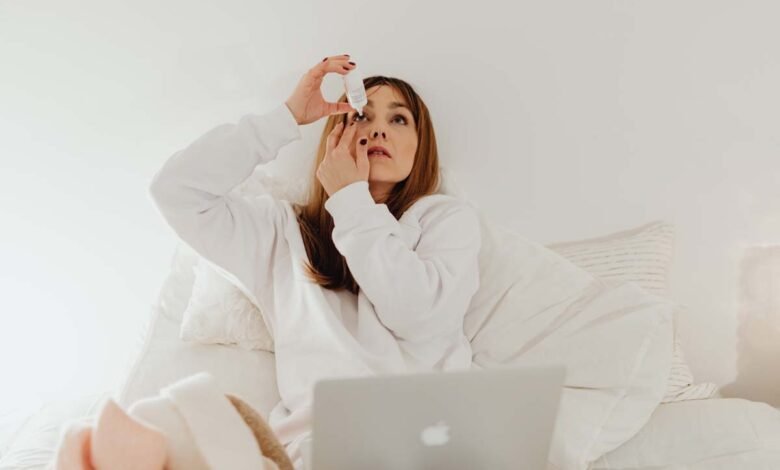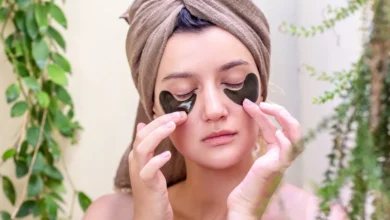11 Ways to Get the Best Eye Care in 2023


Having good eye health is essential for our daily lives. It affects our ability to read, work, and enjoy the world around us. However, many people neglect their eye health until they experience problems. This article aims to provide 11 ways to get the best eye care and maintain good eye health.
Introduction
Your eyes are an essential part of your body, allowing you to see and experience the world around you. However, many people neglect their eye health, leading to vision problems and other eye-related issues. To maintain healthy eyesight, it is crucial to prioritize eye care and take proactive steps to protect and improve your eye health. In this article, we will discuss 11 ways to get the best eye care, including tips for maintaining good hygiene habits, preventing eye strain, protecting your eyes from UV rays, and more. By following these tips, you can improve your eye health and enjoy clear vision for years to come.
Read more: How to Simply Remove Dark Spots Under Eye at Home
Visit an Eye Doctor Regularly
Visiting an eye doctor is essential to maintain good eye health. They can detect and treat eye problems before they get worse. Adults should have their eyes checked at least once every two years, and children should have their eyes checked regularly to ensure their eyesight is developing correctly.
Protect Your Eyes from UV Rays
Protecting your eyes from harmful UV rays is crucial for maintaining healthy eyesight and reducing the risk of eye problems. Prolonged exposure to UV rays can increase the risk of cataracts, macular degeneration, and other eye-related problems.
To protect your eyes from UV rays, wear sunglasses with UV protection when spending time outdoors. Make sure to choose sunglasses with 100% UV protection and wraparound styles that provide full coverage to the eyes and surrounding areas.
Eat a Healthy Diet
A healthy diet is essential for good eye health. Eating foods rich in antioxidants, such as dark leafy greens, citrus fruits, and oily fish, can help prevent eye problems such as cataracts and age-related macular degeneration.
Quit Smoking
Smoking is harmful to our overall health, including our eye health. Smoking increases the risk of developing cataracts, macular degeneration, and optic nerve damage. Quitting smoking can help reduce the risk of these problems.
Take Breaks When Using Digital Devices
Many people spend hours staring at digital devices, which can cause eye strain and fatigue. It is essential to take frequent breaks and look away from the screen to reduce eye strain. The 20-20-20 rule is an excellent way to reduce eye strain. Every 20 minutes, look at something 20 feet away for 20 seconds.
Wear Protective Eyewear
Protective eyewear can help to prevent eye injuries and keep your eyes safe from potential hazards. Whether you are working in a hazardous environment, playing sports, or engaging in home improvement projects, wearing protective eyewear can help to prevent eye injuries and maintain healthy eyesight.
There are several types of protective eyewear available, including safety glasses, goggles, and face shields. When selecting protective eyewear, make sure to choose the right type for your specific needs and ensure that it fits well and is comfortable to wear.
Maintain Good Hygiene Habits
Maintaining good hygiene habits is crucial for protecting your eye health and preventing infections. Avoid touching or rubbing your eyes, as this can transfer bacteria and irritants to your eyes and increase the risk of infection. Additionally, make sure to wash your hands frequently and avoid sharing personal items, such as towels and makeup brushes, to prevent the spread of bacteria.
Be Aware of Eye Strain
Eye strain is a common problem for many people, particularly those who work on computers for extended periods. Symptoms of eye strain include headaches, dry eyes, and blurred vision. If you experience these symptoms, take a break from your work and rest your eyes.
Get Enough Rest
Getting enough rest is crucial for overall health, including your eye health. Lack of sleep can cause eye fatigue, dryness, and irritation, making it more difficult to focus and see clearly. Aim for 7-8 hours of sleep per night to ensure that your eyes are well-rested and functioning at their best.
If you struggle with getting enough sleep, there are several things you can do to improve your sleep habits. Establish a regular sleep schedule, avoid caffeine and electronics before bedtime, and create a relaxing sleep environment by keeping your bedroom cool, quiet, and dark.
Check Your Family History
Many eye problems, such as glaucoma and macular degeneration, can be hereditary. If you have a family history of eye problems, it is crucial to inform your eye doctor so they can monitor your eye health more closely and catch any problems early.
Regular eye exams are especially important if you have a family history of eye problems. Your eye doctor may recommend more frequent exams or additional testing, such as visual field testing or optic nerve imaging, to detect and monitor any potential problems.
Use Eye Drops
Using eye drops is an easy and effective way to keep your eyes hydrated and prevent dryness and irritation. Eye drops work by lubricating the surface of your eye and reducing redness and inflammation. They can also help to flush out irritants and allergens that may be causing discomfort.
Conclusion
In conclusion, taking care of our eyes is essential for good eye health. Following these 11 ways to get the best eye care can help maintain healthy eyesight and prevent eye problems. Remember to visit an eye doctor regularly, protect your eyes from UV rays, eat a healthy diet, quit smoking, take breaks when using digital devices, wear protective eyewear, maintain good hygiene habits, be aware of eye strain, get enough rest, check your family history, and use eye drops. By implementing these tips, you can improve your overall eye health and enjoy clear vision.
Additionally, it is important to note that if you experience any sudden changes in your vision or any discomfort or pain in your eyes, seek medical attention immediately. Ignoring these symptoms can lead to more severe eye problems.
By prioritizing your eye health and following these tips, you can maintain clear and healthy eyesight. Remember, prevention is always better than cure when it comes to eye care.
Read more:10 Reasons For Itchy Red Patches On The Skin
FAQs
How often should I have my eyes checked?
Adults should have their eyes checked at least once every two years, and children should have their eyes checked regularly to ensure their eyesight is developing correctly.
Can smoking affect my eye health?
Yes, smoking can increase the risk of developing eye problems such as cataracts, macular degeneration, and optic nerve damage.
How can I protect my eyes from UV rays?
Wear sunglasses that block 100% of UV rays and/or wear a hat to protect your eyes from the sun.
What is eye strain, and how can I prevent it?
Eye strain is a common problem for many people, particularly those who work on computers for extended periods. To prevent eye strain, take frequent breaks and look away from the screen every 20 minutes.
Can my family history affect my eye health?
Yes, certain eye problems can be hereditary. If you have a family history of eye problems, it is essential to inform your eye doctor and receive more frequent eye exams to detect and treat any problems early.







